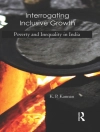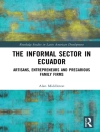Zero-knowledge interactive proofsystems are a new technique which can be used as a cryptographic tool for designing provably secure protocols. Goldwasser, Micali, and Rackoff originally suggested this technique for controlling the knowledge released in an interactive proof of membership in a language, and for classification of languages [19]. In this approach, knowledge is defined in terms of complexity to convey knowledge if it gives a computational advantage to the receiver, theory, and a message is said for example by giving him the result of an intractable computation. The formal model of interacting machines is described in [19, 15, 171. A proof-system (for a language L) is an interactive protocol by which one user, the prover, attempts to convince another user, the verifier, that a given input x is in L. We assume that the verifier is a probabilistic machine which is limited to expected polynomial-time computation, while the prover is an unlimited probabilistic machine. (In cryptographic applications the prover has some trapdoor information, or knows the cleartext of a publicly known ciphertext) A correct proof-system must have the following properties: If XE L, the prover will convince the verifier to accept the pmf with very high probability. If XP L no prover, no matter what program it follows, is able to convince the verifier to accept the proof, except with vanishingly small probability.
Carl Pomerance
Advances in Cryptology – CRYPTO ’87 [PDF ebook]
Proceedings
Advances in Cryptology – CRYPTO ’87 [PDF ebook]
Proceedings
购买此电子书可免费获赠一本!
语言 英语 ● 格式 PDF ● ISBN 9783540481843 ● 编辑 Carl Pomerance ● 出版者 Springer Berlin Heidelberg ● 发布时间 2003 ● 下载 6 时 ● 货币 EUR ● ID 6319311 ● 复制保护 Adobe DRM
需要具备DRM功能的电子书阅读器












